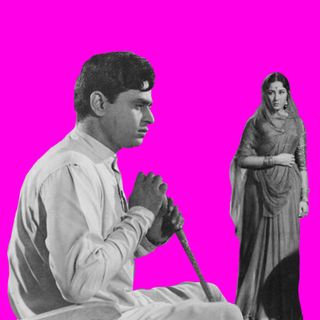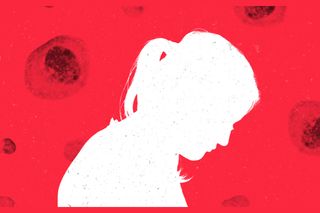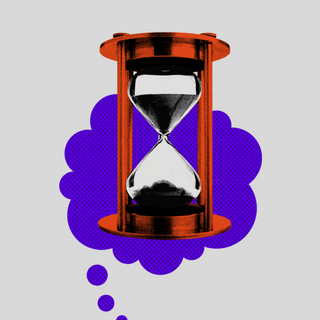
More Than 63% of Indian Women’s Cancer Deaths Were Preventable: Lancet Study
A feminist approach to cancer could save more than 800,000 lives across the globe, every single year, experts noted.

In India, 63% of cancer-related deaths among women were preventable if risk factors were reduced by ramping up screening and diagnosis; simultaneously, timely and appropriate treatment could’ve saved the lives of 37%, new research has found.
The Lancet constituted a global, multi-disciplinary commission — including experts in “gender studies, human rights, law, economics, social sciences, cancer epidemiology, prevention, and treatment, as well as patient advocates” — to investigate the glaring gender gap in cancer care, around the world.
“Of the 3 million adults diagnosed with cancer under the age of 50 in 2020, two out of three were women. Cancer is a leading cause of mortality in women and many die in their prime of life, leaving behind an estimated 1 million children in 2020 alone,” Verna Vanderpuye, co-chair of the commission and senior consultant at the National Center for Radiotherapy, Oncology and Nuclear Medicine in Ghana, said, painting a jarring picture of the state of affairs.
Drawing on data from 185 countries, concerning the health of women aged between 30 and 69, a study published in The Lancet, noted how a “feminist approach” to cancer treatment could probably save the lives of a whopping 800,000 women — worldwide, each year. It’s gender inequality in cancer diagnosis and care that is causing avoidable deaths, the authors note.
Related on The Swaddle:
Women’s Pain Is Underestimated by Men as Well as Other Women, New Research Shows
“The impact of a patriarchal society on women’s experiences of cancer has gone largely unrecognised. Globally, women’s health is often focused on reproductive and maternal health, aligned with narrow anti-feminist definitions of women’s value and roles in society, while cancer remains wholly underrepresented,” Ophira Ginsburg, an oncologist and senior advisor for clinical research at the National Cancer Institute’s Centre for Global Health who co-chaired the commission, told The Guardian. “Our commission highlights that gender inequalities significantly impact women’s experiences with cancer. To address this, we need cancer to be seen as a priority issue in women’s health, and call for the immediate introduction of a feminist approach to cancer.”
Highlighting a case study included in the research, Indian Express reported how a 36-year-old woman from Mumbai died because she never realized her headaches were being caused by a developing brain cancer. When she brought it up with her physically abusive husband, he dismissed her pain, saying, “If you die, then die. If you live, then live.” She did see a doctor, eventually, who deemed it a mere “eye problem,” exhibiting a sheer lack of gender equity in cancer care.
According to research, the deaths of around 1.3 million women who succumbed to cancer in 2020, can be attributed to four major risk factors for cancer: tobacco, alcohol, obesity, and infections.
Yet, “[d]iscussions about cancer in women often focus on ‘women’s cancers’, such as breast and cervical cancer. But about 300,000 women under 70 die each year from lung cancer, and 160,000 from colorectal cancer: two of the top three causes of cancer death among women, globally,” Isabelle Soerjomataram, another co-chair of the commission and a medical epidemiologist at the International Agency for Research on Cancer, pointed out. “Furthermore, for the last few decades in many high-income countries, deaths from lung cancer in women have been higher than deaths from breast cancer. The tobacco and alcohol industry target marketing of their products specifically at women, we believe it’s time for governments to counteract these actions with gender-specific policies that increase awareness and reduce exposure to these risk factors.”
Related on The Swaddle:
Even in the domain of breast cancer, the treatment of women rarely takes into account their inner struggle — dealing with a serious, life-threatening illness while navigating societal expectations of women’s bodies. This “can negatively influence an individual’s sense of identity and views of the body,” as one study noted.
The majority of breast and cervical cancer deaths, too, among the female population, are often premature and largely avoidable, according to the Agency for Research on Cancer. The fate of women battling other forms of cancer — where research rarely acknowledges them — is evidently worse.
The latest research, then, adds to what we already knew: we live in a world where women are often an afterthought in the realm of medical research.
Not only is the perception of women as child-bearers and child-rearers contributing to the lack of research into cancers that aren’t confined to their breasts and cerivices, but the sexism prevalent in the STEM fields also discourage the participation of women — creating a dearth of women-centred cancer prevention and care, as a result of women being scarce in cancer research, practice and policymaking.
The present — and prevalent — healthcare model is based on a skewed power dynamic between doctors and patients, often making the latter feel cornered and bereft of agency. This is precisely where the feminist model of healthcare — characterized by “symmetry in provider-patient relationships, access to information, shared decision-making, and social change” — can usher change, making healthcare not only accessible, but also beneficial, for everyone involved.
But a feminist approach to cancer research won’t just benefit women, but make society more equal for everyone. As Monica Bertagnolli, director of the National Cancer Institute who was not involved in the commission, reiterates, “Achieving gender equality in the context of cancer research and care… is something that we can and should all support. Improved outcomes for women translate into benefits for households, communities, societies, and the world.”
Devrupa Rakshit is an Associate Editor at The Swaddle. She is a lawyer by education, a poet by accident, a painter by shaukh, and autistic by birth. You can find her on Instagram @devruparakshit.
Related


Period Food Cravings Really Exist and Have a Scientific Basis, Study Shows
